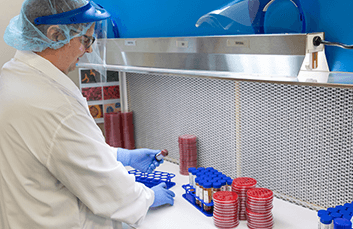Cell-Free DNA BCT featured in Nature
Topics Featured
New Nature Medicine publication relies on Streck Cell-Free DNA BCT® to identify tumor mutations using high-intensity sequencing of plasma origin cell-free DNA (cfDNA)
Researchers developing advanced methods for characterizing tumors through the analysis of circulating DNA in the bloodstream used Streck Cell-Free DNA BCT® to collect the blood samples used in their study. The study, which was a collaboration between the Memorial Sloan Kettering Cancer Center in New York and GRAIL Inc. in California, was recently published in Nature, one of the most highly acclaimed peer-reviewed journals for the natural sciences worldwide.
Cell-free DNA (cfDNA) is DNA that is not contained within a cell. Cell-free DNA is found within many different bodily fluids, including blood. This cfDNA can result from apoptosis, cell lysis, or other types of cellular damage. In patients with cancer, a proportion of the cfDNA in circulation originates in tumor cells. Recently, oncologists have been working on methods to use cfDNA to analyze the genetic profiles of individual patients’ tumors. This could enable better informed decisions regarding treatment plans, therapeutic effectiveness, and remission without needing to perform tumor biopsies. Liquid biopsy could also be used for initial diagnostics or monitoring of difficult to access tumor sites.
So far, most screens that use cfDNA only examine a small number of genes for common, so called hot-spot, mutations that occur in cancer. The researchers from Memorial Sloan Kettering devised a highly sensitive assay to cover a broad range of targets and can detect hundreds of potential genetic variants within a single blood sample. Their new assay is also highly stringent, using white blood cell (WBC) DNA to control for germline and non-cancerous somatic mutations in each individual.
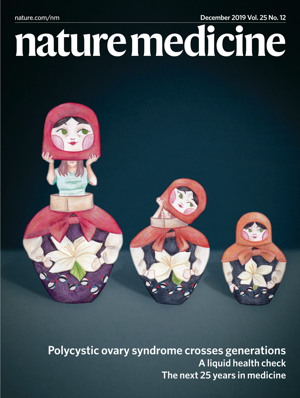
High-intensity sequencing reveals the sources of plasma circulating cell-free DNA variants
The researchers trialed their high-intensity cfDNA screen with clinical samples from cancer patients and healthy individuals. They analyzed blood samples from 124 people with metastatic breast cancer, non-small cell lung cancer, or castration-resistant prostate cancer, as well as 47 people without cancer. Each sample was collected into Streck Cell-Free DNA BCT, which maintained the cfDNA population until analysis. DNA originating from donor-matched tumor biopsies was analyzed for comparison.
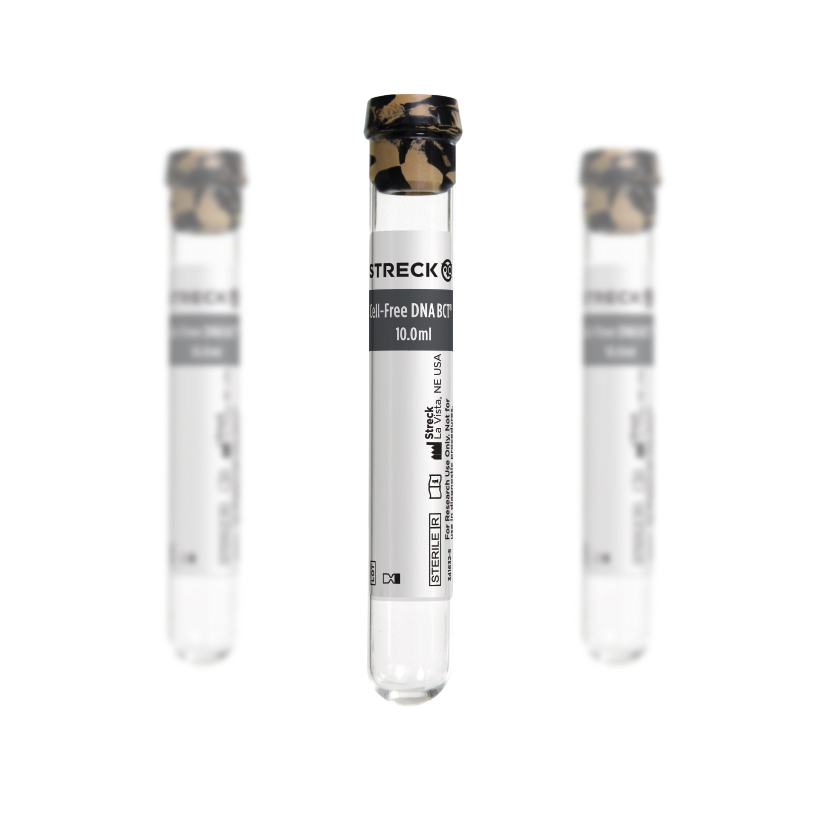
Streck Cell-Free DNA BCT is a blood collection tube which limits cellular degradation and resultant release of genetic material into the plasma, keeping the cfDNA free from contamination during storage, shipping, or batching. Blood samples could be collected in the clinic in New York then shipped to California at room temperature for testing without damaging the precious patient samples.
Next-generation sequencing was performed on both the cfDNA and WBC genomic DNA from every trial participant. Genomic DNA from the tumor biopsies was analyzed through Memorial Sloan Kettering’s MSK-IMPACT test, which identifies mutations in a panel of genes related to cancer characteristics and drug susceptibility. By cross-referencing the cfDNA sequencing results with those for the WBCs, the researchers determined which gene variants identified in the cfDNA were present throughout all of a patient’s cells; those that weren’t had developed only in the tumor.
Overall, this high-intensity sequencing method was able to detect most of the genetic mutations identified in the tumors by the MSK-IMPACT test. The assay detected at least one tumor-specific mutation through the cfDNA of 84% of the participants with cancer and identified 530 out of 740 total mutations picked up by MSK-IMPACT.
The pre-analytical variables in the study were minimized by using Streck Cell-Free DNA BCT and the use of a stabilization tube allowed cross-country shipping of precious cancer patient blood samples from the clinic to the analytical facility. Streck Cell-Free DNA BCT maintained the nucleated blood cells, thereby ensuring integrity of the cfDNA population.
Cell Free-DNA BCT is for Research Use Only. Not for use in diagnostic procedures in the U.S. A CE tube is available in some regions.
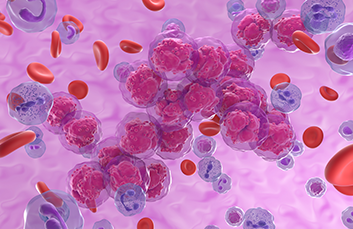
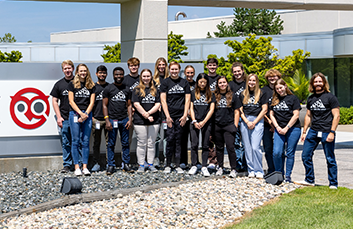
Fall 2023 Career Fair Preview
